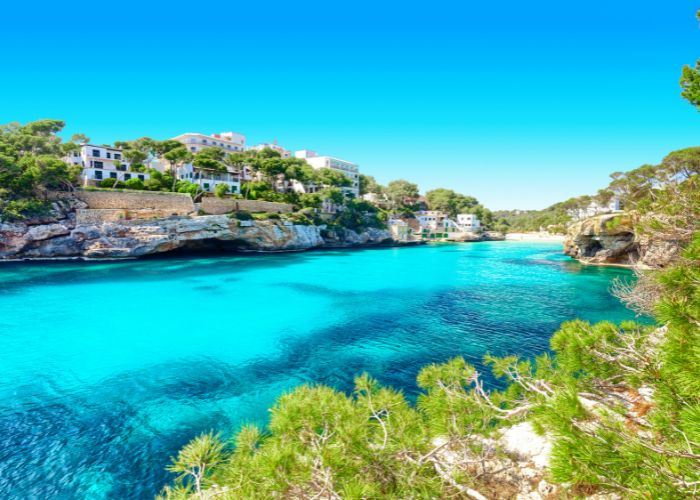Spain is ranked as the best sustainable tourist destination compared to other countries by 38% of tourists who consider themselves sustainable.
This is according to a report ‘Expectations and behaviour of European travellers in terms of sustainability’, conducted by Mastercard and in collaboration with Turespaña.
The report shows that the more sustainable the traveller’s profile is, the better they perceive Spain to be. Travellers who consider Spain a more sustainable tourist destination than others highlight features such as a good infrastructure network or unpopulated places.
Socio-economic factors and environmental aspects
The aspects that make a trip sustainable were also named. Socio-economic factors are the most important, for 78%, while environmental aspects are mentioned by 65%.
As socio-economic factors, tourists mention shopping in local shops (56%) and staying in accommodation that benefits local people (49%). But also the fact that the companies involved in the trip treat their employees fairly (44%) is important.
In terms of environmental factors, respondents consider the use of renewable energy by accommodations (57%), energy and water conservation (49%) and visiting eco-friendly shops and restaurants (48%) most important.
However, on the other hand, price (38%) and lack of information for users (27%) are the main barriers that make travellers end up choosing less sustainable options.
Director general of Turespaña, Miguel Sanz, highlighted that Spain has many protected areas, the use of renewable energy sources, an extensive high-speed rail network and other local initiatives, which are “great advantages for the country to be recognised as the most sustainable holiday destination”.
General manager of Mastercard Spain, Paloma Real, pointed out that the data from the survey reflects Spain’s commitment to a sustainable form of tourism. Visitors consider not only the environment important in this respect, but also other factors such as support for local people.
Also read: Benidorm applies for EU funds with sustainable proposal
41% of travellers are not sustainable
The survey identified four profiles of travellers and classified them according to their degree of affinity with sustainability. These are as follows;
- 10% of travellers are very sustainable
- 6% sustainable
- 43% are in the process of becoming aware
- 41% are not sustainable.
The highly sustainable tourist makes more expensive trips (33%) and longer trips (71% more than a week) than the average and could therefore justify destinations’ investment in sustainability.
Of the travellers surveyed, 69% would accept a 5% surcharge for a sustainable holiday and up to 72% of the most conscious profiles would accept a surcharge of up to 10%.
Also read: Balearic islands want more sustainable and quality tourism
Three quarters of travellers satisfied with Spain
Turespaña also presented the final data from the ‘Non-resident Traveller Satisfaction Survey 2022’. The main conclusion was that 75% of international tourists who visited Spain last summer are satisfied or very satisfied with the destination’s commitment to sustainability.
The survey includes satisfaction with various aspects of social and environmental sustainability, such as;
- saturation and overcrowding
- impact on local society
- resource use
- waste management
But also on, for example, the use of materials for multiple use and recyclable materials or information on carbon footprint/compensation options.
Also read: Ribera del duero gets sustainable tourism boost
These are the most valued aspects
The aspects with the highest rating are resource use (71%) and impact on the local community (70%). However, what evokes the most dissatisfaction is the aspect related to information and carbon footprint offsetting opportunities. On this, 21% are dissatisfied.
Also read: Green Spain unites to deliver sustainable tourism initiatives


